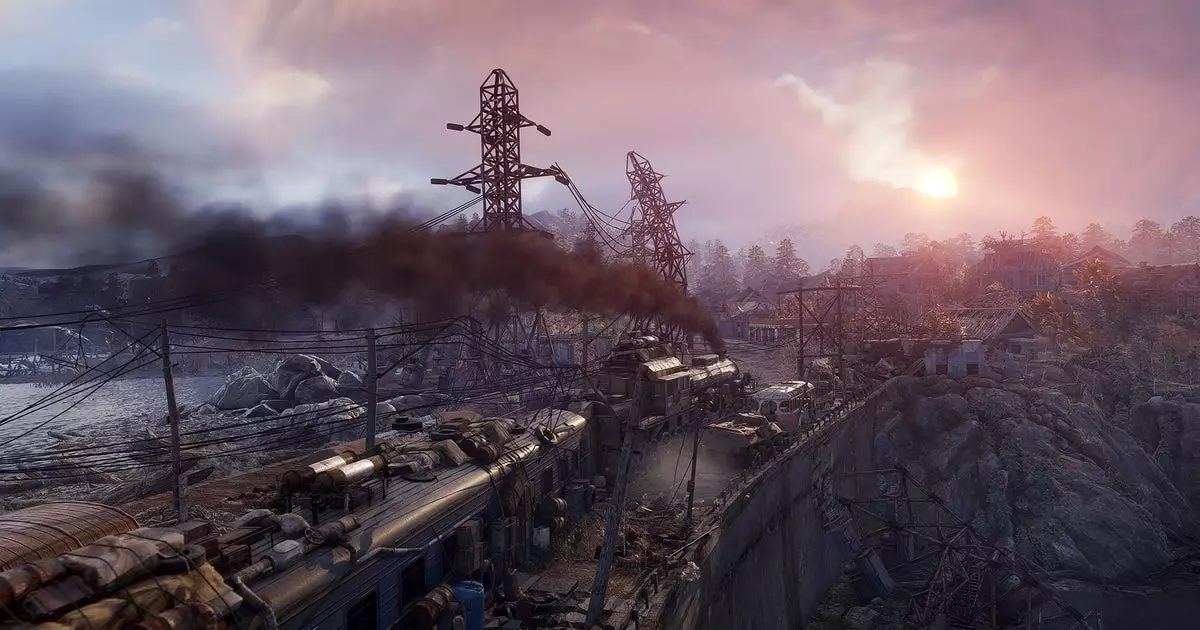This month marks a significant milestone for the acclaimed survival horror series, Metro 2033, which celebrates its fifteenth anniversary. The franchise, known for its gripping storytelling and atmospheric gameplay, started as a novel by Dmitry Glukhovsky and swiftly evolved into a landmark in the gaming world. As fans reflect on the series’ haunting portrayal of post-apocalyptic life within the depths of Moscow’s metro, it’s impossible to ignore the impact this narrative has had on both its audience and its creators.
Adapting to Harsh Realities
Development studio 4A Games is currently navigating through one of the most turbulent periods in Ukrainian history, marked by an ongoing conflict that began with Russia’s invasion in 2022. In a recent blog post, the team assured fans that, despite the dire circumstances—including missile strikes and air-raid sirens—they remain committed to their projects. Yet, these harrowing realities also seep into their creative process, prompting a shift in the story direction for the next installment of the Metro series, aptly dubbed Metro 4.
The transformation of the developers’ lived experiences into narrative depth is not only admirable but essential. As they confront the chaos surrounding them, their storytelling grows richer and more poignant. It’s an approach that resonates deeply, emphasizing that art and life often interweave in ways that enhance empathy and understanding.
From Fiction to Lived Experience
Glukhovsky’s original story, which explores themes of survival, power struggles, and the human spirit’s resilience, gains new layers of meaning when placed against the backdrop of contemporary conflicts. The developers have expressed a desire to incorporate these elements into Metro 4, potentially broadening its message. They suggest that the war significantly influences how the narrative unfolds, making darker themes even more pronounced. This commitment to authentic storytelling reflects the studio’s desire to engage with significant social issues while crafting an engaging game experience.
Through the lens of hardship, Metro 4 has the potential to evolve from a simple sequel into a profound reflection on the human condition. By embedding the realities of war and loss into the gameplay, they can offer what many contemporary video games lack—a genuine exploration of the emotional toll of conflict, all while maintaining the franchise’s signature atmosphere of tension and survival.
Collaborative Spirit Amidst Crisis
4A Games has reaffirmed their commitment to working alongside Glukhovsky, ensuring that the core themes of the series—anti-war sentiments, emotional storytelling, and political critique—remain intact. In a world increasingly affected by war, oppression, and tyranny, the Metro series serves as a reminder of the power of storytelling to address harsh realities and provoke thought. As the studio forges ahead, fans eagerly await the next chapter, not just for the gameplay, but for a narrative that can resonate deeply with the challenges of our time.
The anticipation for Metro 4 has transformed into more than just a wait for another game; it has become an expectation for an emotional journey that will reflect the resilience of its creators and their unwavering spirit amid tumultuous circumstances. This is a game that promises to transcend the boundaries of entertainment, delving into the profound and complex realities of human existence.

